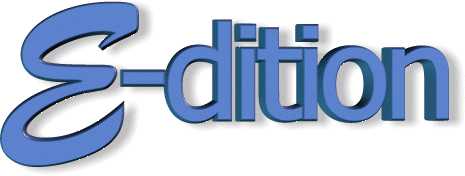Our world is developing at an
unprecedented rate. What once seemed fantastic and unattainable can now be found in everyday life. More and more discoveries
are being made, and many necessary devices and devices are being invented. And if society is moving forward, we need to keep
up with it. This applies to every sphere of life, including the spiritual sphere. Do books need to change or do they belong
in book museums? Because printed books have been replaced by electronic books. They are now the main source of
information.
The biggest library in the world
is the Library of Congress in Washington, DC. Its fund exceeds 155 million books in 470 languages. The numbers are
impressive! But, on the other hand, the maintenance of a huge building and numerous staff members requires a lot of
expenses. Are such expenses from the state budget justified? And if suddenly an emergency happens in the library building,
how many books may disappear irretrievably. There is an alternative solution.
On the Internet you can find a
huge number of electronic books of different genres, trends and subjects. A huge digital library, which contains almost all
the books in the world! It's convenient, fast and affordable.
E-books are actively being
introduced into the educational process. These are not just books, but interactive publications: with video clips, audio
materials, and the ability to comment. Children with visual impairments can magnify information while reading, which is
important for their well-being and academic success.
And what a complicated and
costly process it is to create a printed book! First, the author works directly on the work. Then he sends his creation to
the publisher. If he likes the work, the editor corrects mistakes in the text, eliminates defects. Then, if necessary,
illustrators prepare the image and make the layout. The book must be typed and printed on special machines. Then comes the
proofing on metal plates, dipping into large cylinders and covering with paint. When the paint dries, the sheets are folded
and the remnants are trimmed. Then they are assembled for binding. In the final step, all the parts of the book are glued
together, the cover is attached, and the edges are even. Now it can be shipped to bookstores or libraries. That's how much
it takes for a reader to pick up a book. Wouldn't it be easier to just read it online?
Another important fact: the
ecology of the planet is deteriorating. Forests are destroyed to make books, and the empty land is swamped. Rivers and
seas are becoming uninhabitable for living organisms because of the active discharge of waste from factories.
abada |
lettre commerciale |
louchebem |
ambrose bierce |
aesopsfables |
dictionary |
genre |
eale ou centicore |
organize |
electronic |
downloads |
prince of whales |
bienvenue |
halloween colors |
200 squelettes |
les debuts |
witchcraft |
dimwit |
les champignons |
perles 2 |
fables esope |
ail allium sativum l |
korrigan un lutin breton |
raw materials |
paradox |
gizmos |
louchebem |
win2001 |
animaux masculin et feminin |
cant voi laube du jour venir |
Credito |
Все знаки |
письменный стол с ящиками |
prestamo de dinero en linea |
магистратура по лингвистики |
цена СМС рассылки по своей базе |
система анализа слов во входящих звонках |
рассылка в WhatsApp |
сервис обратного звонка с сайта |
Подписка на еду
Home

